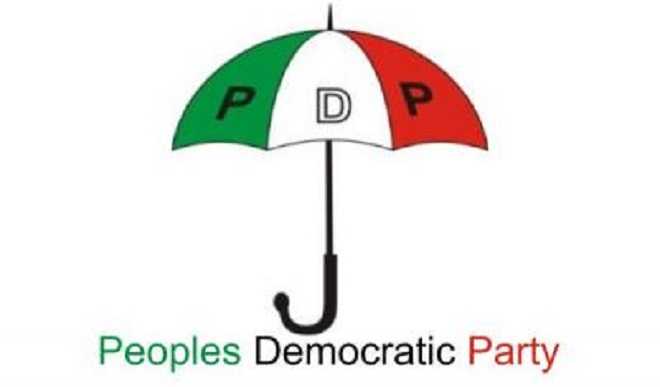Why PDP must save itself
It bears repeating. I have said it before in this column. I say it again. We must persuade the leaders of the PDP to pull their party back from the cliff. We must not let them tip it over. It is not for their sake. It is for our sake as a people and as […]


It bears repeating. I have said it before in this column. I say it again. We must persuade the leaders of the PDP to pull their party back from the cliff. We must not let them tip it over. It is not for their sake. It is for our sake as a people and as a country. And for the sake of our democracy too.
The way the PDP leaders are reaching for one another’s jugular does not make for a pleasant sight. It can only tear the party beyond any attempts to patch-patch it. We should not find their antics amusing. Ok, we can permit ourselves the occasional quiet chuckle. If we fail to persuade them to pull the party back from the cliff, the chances are that APC might be the only party left standing.
There are horrendous implications for that eventuality. We would be looking at the grim prospects of a one-party state in the 21st century. It is neither necessary nor desirable for Nigeria to be turned into a one-party state. A strong constitutional democracy depends on the inter-play of forces among two or more political parties. A one-party state is not just anachronistic. It is undesirable. It denies the people the right to one of the cardinal principles of democracy: political pluralism.
It would be a bad mistake to think that the recent court of appeal decision giving the national leadership of the party to Ali Modu Sheriff has ended the leadership tussle in the party. It has not. Not by a long shot. Makarfi, in reaction to the judgement, served notice of his preparedness to pursue the matter to the Supreme Court. Even if this rival to the battered throne does not think it necessary to pound the corridors of the law courts in search of a sympathetic ear from the bench, you can be sure that given the protracted crisis and given the bruised ego and given the economy of crisis, it would simmer and it would linger, undermining the party and its hopes to regain its glory in the near future. Time is running out for the party, I fear.
Nor should we ignore the emergence of a new political party called Advanced Peoples Democratic Party, APDP. Where did this come from post the appeal court judgement? So far Makarfi and the chairman of the PDP board of trustees, Senator Walid Jibrin, have denied knowing anything about the move to register a new party with just a new word, advanced, added to PDP. In 2015, when the party split into two factions for the first time, we had one word, new, added to PDP as in nPDP. History has a funny way of repeating itself.
If newspaper reports are to be believed, it would seem that the PDP crisis might be resolved entirely through the law of attrition. PDP governors are the main pillars of the Makarfi faction. It may or may not be true that some visible cracks have appeared on those pillars. If this is true, it may either force the former governor of Kaduna State to capitulate and save himself the empty heroism of allowing the house to crumble over his head or he might brave it up to the highest court in the land. He has two options here. He would either return to the party, even if he has to tuck his tail between his legs, or he might show us who and who are behind APDP.
It seems to me the former senator holds the key to the resolution of the crisis in his party. If he accepts the verdict of the court of appeal and the appeals of some of the leaders of his party and returns to it, he would give the party the chance to begin the long process of binding its wounds and massaging the bruised ego of its leaders. The power to either save the party or make it history hangs over his head. It is Makarfi’s call. Perhaps, not entirely.
Let me make a true confession here. I do not number myself among the lovers of the PDP. It should not, ordinarily, matter that much to me if it lives or dies. But my consideration is beyond my personal feeling towards the party. Larger issues of democracy and constitutional government are involved in its survival. My argument for saving it in whatever shape or form is based on a simple logic. Our constitution does not permit institutionalised opposition. Given the chop-chop nature of our national politics, losing parties fade away after each round of our national elections. The winning party struts the stage, bedecked in the plumes of arrogance.
This was what convinced the PDP leaders that their party was so big and so invincible that it was destined to rule the country for at least 60 years in the first instance. The leaders of the party then went on to make arrogance and impunity the hallmarks of what they understood to be democracy and constitutional government. It became the undoing of the PDP in a manner of pride going before a fall.
A strong political party out of government would serve as an informal opposition to the party in power. If the party in power knows there is an alternative to it, it would moderate its arrogance and its arrogant treatment of the electorate. This is the retraining factor that cures politicians of arrogance and insanity.
